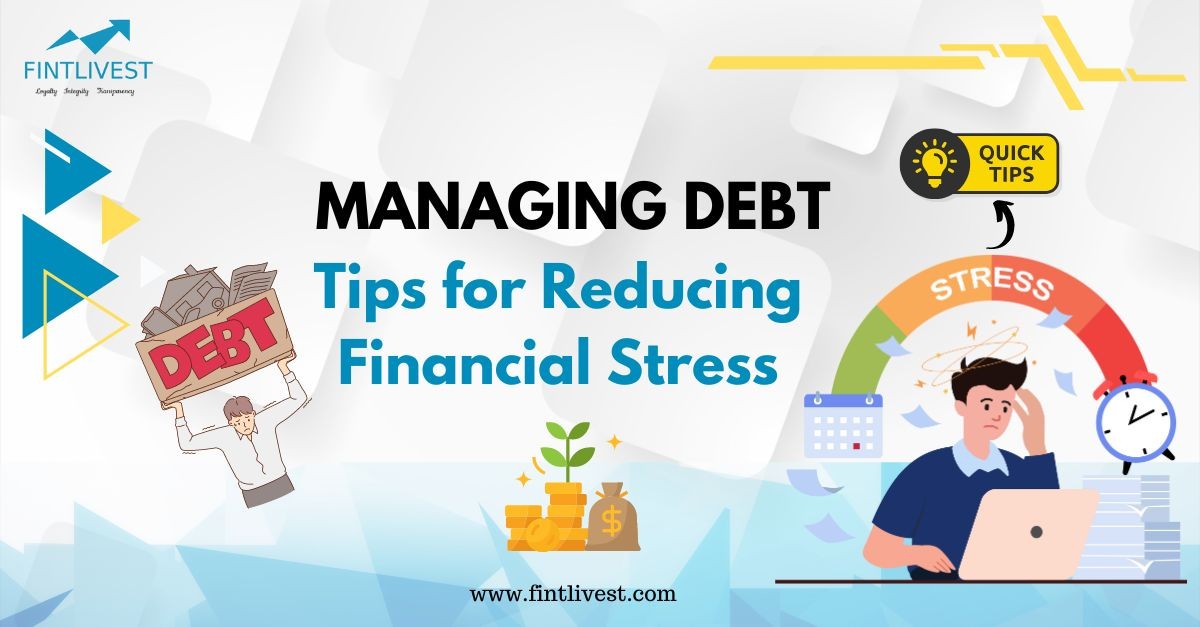Managing debt is a crucial aspect of personal finance, especially when aiming to reduce financial stress. Unmanaged debt can quickly spiral out of control, leading to anxiety and a strained financial situation. Here are some effective strategies to help you manage debt and reduce financial stress, ensuring a more secure financial future.
1. Create a Budget
The first step in managing debt is to create a detailed budget. List all your income sources and monthly expenses. Categorize your expenses into fixed (rent, utilities) and variable (groceries, entertainment). Understanding your cash flow will help you identify areas where you can cut back and allocate more funds toward paying off debt.
2. Prioritize High-Interest Debt
Not all debts are created equal. High-interest debts, such as credit card balances, can quickly grow if not addressed. Prioritize paying off these debts first to reduce the overall interest you’ll pay. The avalanche method—focusing on high-interest debt while making minimum payments on others—is a popular strategy for efficient debt reduction.
3. Consider Debt Consolidation
If you have multiple debts with varying interest rates, consider debt consolidation. This involves combining all your debts into a single loan with a lower interest rate. Debt consolidation can simplify your payments and potentially lower your monthly obligations, making it easier to manage your finances.
4. Negotiate with Creditors
Don’t hesitate to reach out to your creditors to negotiate better terms. Whether it’s lowering your interest rate, extending your payment period, or settling for a reduced amount, creditors may be willing to work with you, especially if you’re struggling to make payments.
5. Avoid Taking on New Debt
While paying off existing debt, it’s essential to avoid taking on new debt. Resist the urge to use credit cards or take out new loans unless absolutely necessary. Focus on living within your means and using cash or debit for your purchases.
6. Build an Emergency Fund
An emergency fund acts as a financial safety net, helping you avoid accumulating more debt when unexpected expenses arise. Start by saving a small amount each month until you reach at least three to six months’ worth of living expenses. Having an emergency fund reduces financial stress by giving you peace of mind that you’re prepared for the unexpected.
7. Seek Professional Help
If managing debt becomes overwhelming, consider seeking help from a financial advisor or credit counselor. These professionals can offer personalized advice and create a debt management plan tailored to your situation. They can also negotiate with creditors on your behalf to secure better terms.
8. Adopt a Debt-Reduction Mindset
Managing debt requires a shift in mindset. Adopt a proactive approach to your finances by setting clear goals, such as becoming debt-free within a certain timeframe. Stay motivated by tracking your progress and celebrating small victories along the way.
9. Cut Unnecessary Expenses
Review your spending habits to identify and eliminate unnecessary expenses. Whether it’s dining out less, canceling unused subscriptions, or shopping for discounts, reducing your spending can free up more money to put toward your debt.
10. Stay Consistent and Patient
Debt reduction takes time and discipline. Stay consistent with your payments, even if progress seems slow. Patience is key; over time, your efforts will lead to significant improvements in your financial situation.
By implementing these strategies, you can effectively manage debt and reduce financial stress. Not only will this improve your financial health, but it will also enhance your overall well-being, allowing you to focus on building a secure financial future.









